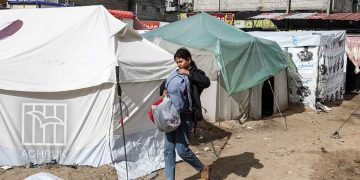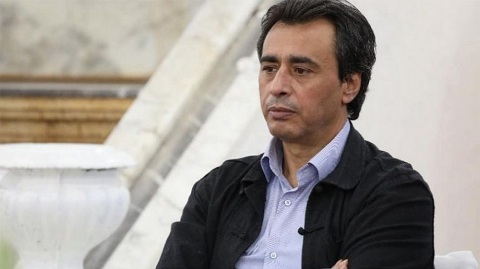Constitutional law professor Jawhar Ben Mbarek has announced that he will continue the hunger strike he began 17 days ago from his cell in Belli Prison in Nabeul Governorate, until his demands on his release and the rest of the political detainees are met.
Ben Mbarek began his open-ended strike on 29 October, in protest at his arrest in the so-called “conspiracy against state security” case, which has targeted a group of politicians, lawyers, and civil society activists since February 2023 on charges that include “attempting to undermine public order”, “collusion with foreign parties”, and “incitement to chaos or rebellion”.
In a message addressed to the public and shared on his official Facebook page, Ben Mbarek affirmed that he would “continue the hunger strike and the struggle with my own body until our demands are achieved”, expressing solidarity with fellow detainees who have launched similar strikes, among them Issam Chebbi, Secretary-General of the Republican Party; political figure Abdelhamid Jellassi; Ennahda leader Rached Ghannouchi; and former presidential chief of staff Ridha Belhaj.
This comes against the backdrop of harsh preliminary court rulings issued last April, sentencing political opponents to prison terms of up to 66 years, as the authorities attempt to portray these violations as legitimate criminal cases, in an effort to mask repressive practices while detainees continue to face physical and psychological abuse inside prisons, as Ben Mbarek himself has experienced.
The arrest of Ben Mbarek and his colleagues lays bare the severe deterioration of human rights conditions in Tunisia, where the law is being wielded as a tool of repression to criminalise dissent and deprive citizens of their rights to expression and political participation, in blatant violation of international covenants safeguarding liberty, fair trial guarantees, and human dignity.
The situation also reflects the collapse of legal safeguards in the country and the transformation of the judiciary into an instrument for settling political scores, leaving any opponent of the regime vulnerable to arbitrary imprisonment and psychological and physical intimidation.
Amid these repressive policies, the Tunisian people face a persistent threat to their fundamental rights, while detainees are left to endure inhumane conditions inside prisons, in the face of a shameful silence both domestically and internationally.


























